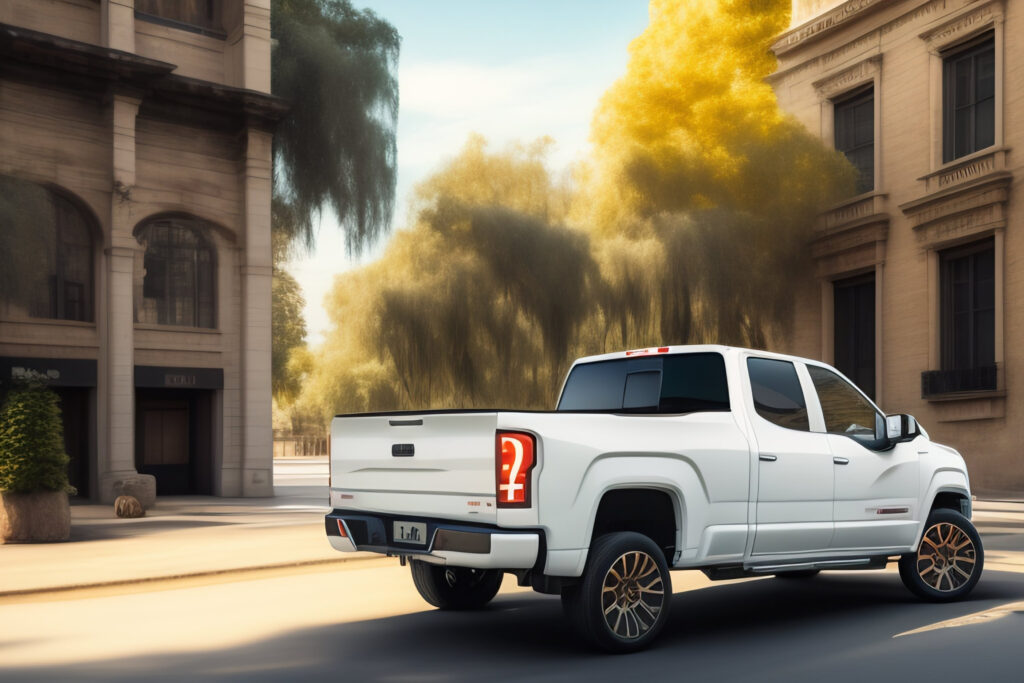The distinctions made by HM Revenue and Customs (HMRC) regarding the classification of vehicles for tax purposes can have a big impact on both individuals and businesses. The classification of pickup trucks is one area that frequently leads to misunderstandings. Do they qualify as cars or vans? Those who utilize these cars for both personal and professional travel should pay special attention to this subject. We shall examine how pickup trucks are classified and delve into the specifics of HMRC’s requirements in this post.
Understanding HMRC’s Classification Criteria
Vehicle categorization by HMRC is based on a number of variables, including design, payload capacity, and intended purpose. For tax purposes, the difference between a car and a van is crucial because it affects the benefit-in-kind (BIK) tax that an employee must pay for using the vehicle for personal use. Vans are generally subject to lower BIK rates than cars, therefore this classification is important for efficient tax planning. The financial considerations pertaining to the use of vehicles in a corporate setting can be greatly impacted by an understanding of these classes.

The Double Cab Pickup Conundrum
One of the most contentious classifications is the double-cab truck. These cars blur the boundaries between a car and a regular van because to its four doors and second row of seats. A double cab pickup truck is considered a van for tax reasons if its payload is one tonne (1,000 lb) or greater, according to HMRC. This classification is based on the car’s capacity to transport cargo, which is consistent with a van’s main purpose.
But when other factors are taken into account, the picture gets more complicated. For example, the pickup’s cargo capacity may be lowered if a hard top is added.
Recent Updates and Legal Rulings
Pickup truck classification has been further clarified in recent years by a number of modifications and court decisions. A Court of Appeal ruling from 2020 held that, for benefit-in-kind purposes, the majority of multipurpose vehicles—including double cab pickups—should be categorized as automobiles if their payload is less than one tonne2. The taxation of these cars has undergone major modifications as a result of this verdict, which prompted HMRC to alter its instructions.
HMRC declared in February 2024 that double cab pickups with a payload of one tonne or more will be taxed as automobiles rather than being considered commercial vehicles for benefit-in-kind purposes3. The planned effective date of this modification was July 1, 2024. Nevertheless, HMRC chose to rescind this revised advice in response to comments from a number of stakeholders, including farmers and the automotive sector. Therefore, for tax purposes, double cab pickups with a payload of one tonne or more are still classified as vans.
Implications for Businesses and Individuals
There are important financial and personal ramifications associated with the classification of pickup vehicles. Businesses can save a lot of money on taxes if they can categorize a pickup truck as a van. Employees who utilize vans for personal travel may pay less in taxes overall since they are subject to lower benefit-in-kind rates. Further augmenting the financial benefits, van purchases made by corporations can also result in more advantageous capital allowances.
For individuals, the tax they pay on a car when they use it for personal use is greatly affected by the classification of the vehicle. When a car is designated as a van, the benefit-in-kind tax is usually higher than for a car. This differential is crucial to take into account when calculating the total cost of using a car because it might result in significant savings. The financial ramifications of this classification might affect choices about which vehicles to use and how to use them, which is important for efficient tax planning.

For individuals, the tax they pay on a car when they use it for personal use is greatly affected by the classification of the vehicle. When a car is designated as a van, the benefit-in-kind tax is usually higher than for a car. This differential is crucial to take into account when calculating the total cost of using a car because it might result in significant savings. The financial ramifications of this classification might affect choices about which vehicles to use and how to use them, which is important for efficient tax planning.
Practical Considerations and Compliance
Given the intricacies of HMRC’s categorization rules, it is vital for firms and individuals to carefully assess the specifications of their cars. It is important to check the cargo capacity and comprehend how any alterations, such adding a hard top, can impact the categorization when buying a pickup truck. HMRC’s recommendations and tax advisor consultations can help maximize tax planning and guarantee compliance.
Conclusion
HMRC’s classification of pickup trucks is a complex matter that necessitates carefully taking into account a number of variables, such as vehicle design and payload capacity. For tax reasons, double cab pickups with a payload of one tonne or more are often categorized as vans; however, recent court decisions and revisions to HMRC’s guidelines have complicated this categorization. Comprehending these differences is essential for both people and organizations to ensure efficient tax planning and compliance. It is possible to negotiate the complexities of HMRC’s vehicle classification and make well-informed decisions that maximize tax outcomes by remaining educated and obtaining competent guidance.


